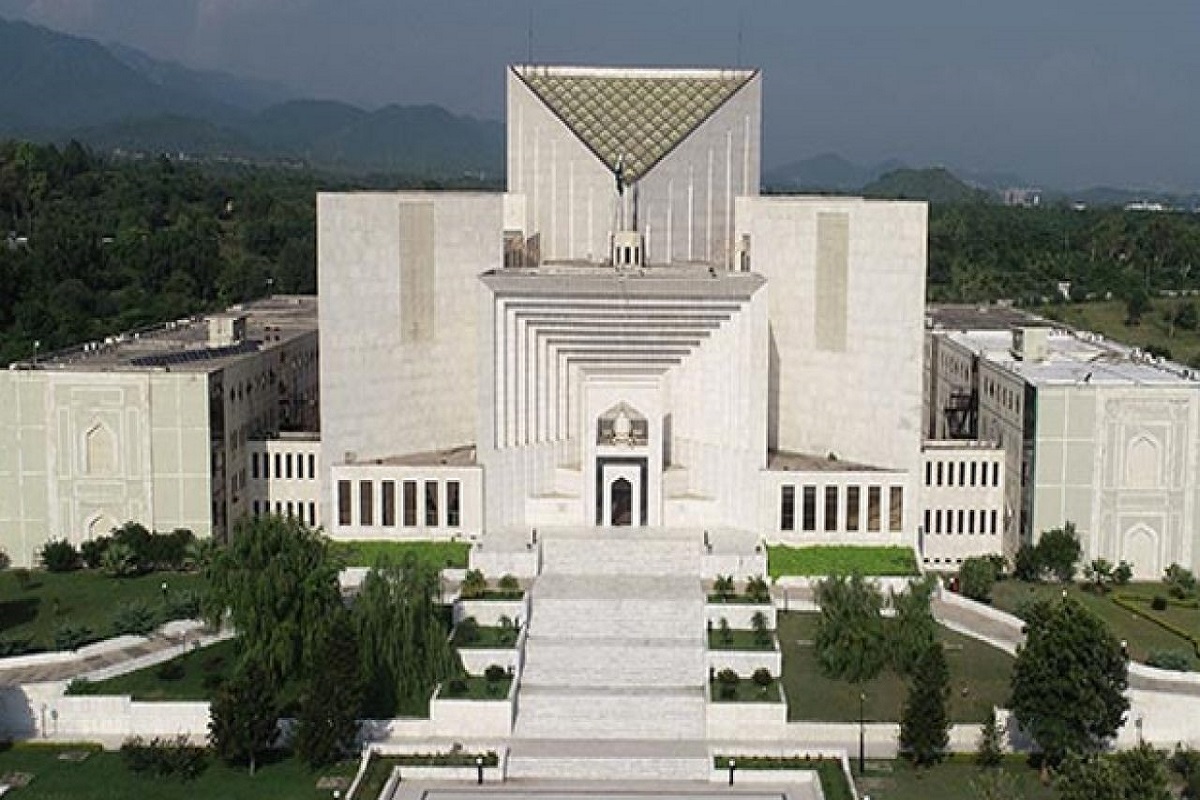
SC rules SJC proceedings cannot be stopped even after resignation of judges
ISLAMABAD: The Supreme Court (SC) of Pakistan on Wednesday affirmed that once initiated, proceedings by the Supreme Judicial Council (SJC) cannot be stopped even upon the resignation or retirement of judges.
This ruling came from a larger five-member bench, which concluded hearings on the federal government’s appeal against the SC’s 2023 judgment in the Afia Sheharbano Zia case.
Led by Justice Aminuddin Khan, the bench delivered a split verdict, with a 1-4 ratio, as Justice Hassan Azhar Rizvi dissented from the majority decision. The SC’s ruling underscores the SJC’s independence to conduct inquiries into judges, irrespective of their resignation status.
In the concise verdict today, the SC highlighted that the SJC holds discretion on whether to pursue proceedings against a judge facing complaints, with detailed reasons for the decision promised later.
During the hearings, Justice Musrat Hilali queried the impact of a judge resigning mid-proceedings. In response, Judicial Assistant Akram Sheikh emphasized the council’s autonomy from such resignations, emphasizing the importance of uninterrupted due process.
Additionally, Justice Hilali referenced a similar circumstance in India, where a judge’s retirement during an inquiry didn’t disrupt proceedings. Justice Irfan Saadat raised a question regarding whether the absence of notice from the council would terminate a reference against a judge.
Justice Jamal Khan Mandukhel highlighted that addressing complaints against judges isn’t solely the responsibility of the council chairman but of the entire council, revealing a backlog of over 100 complaints awaiting resolution.
The SC’s earlier ruling in the Afia Sheharbano Zia case clarified that judges who retire or resign aren’t subject to Article 209 of the Constitution, which addresses misconduct among superior court judges.
#rules #SJC #proceedings #stopped #resign #judges





